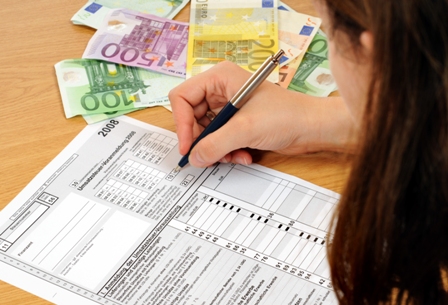RevaticSmart, a Deloitte’s initiative, will assist Middle East businesses to recover levies paid in the European Union countries…

It is widely estimated that every year businesses incur $1.8 billion of European Union VAT which they should be entitled to recover.
DELOITTE HAS announced the launch of a regional initiative to assist Middle East businesses to recover tax (value added tax) paid in the European Union countries through the use of special proprietary technology, ‘RevaticSmart’.
The technology allows Deloitte to efficiently and cost effectively identify, process, and substantiate VAT refund claims and facilitates the entire VAT recovery lifecycle, including eligibility analysis, invoice retrieval, refund processing improvement and dispute resolution.
“This technology acquisition, combined with Deloitte’s local indirect tax expertise, presents a unique opportunity for our clients in the Middle East to reduce hidden VAT costs,” said Nauman Ahmed, Deloitte Middle East tax practice leader.
Indirect Tax leaders
‘RevaticSmart’, extracts data necessary to recover VAT incurred, which might otherwise be lost.
Concurrently, the International Tax Review Indirect Tax Leaders guide has recognised 94 Deloitte member firm professionals as leading indirect tax advisers, more than any other organisation in the world. The list includes the Deloitte Middle East Indirect Tax Leader, Justin Whitehouse.
“I am delighted to have been named on the recognised Indirect Tax leaders list as it is personally pleasing. However, it is a testament not just to me, but the Indirect Tax team in the Middle East, which is the largest specialised team of its type in the region helping clients across all indirect tax issues,” said Justin Whitehouse.
Credibility of nominees
The tax professionals featured in the guide are identified by researchers who conduct in-depth evaluations of indirect tax practitioners worldwide. Leaders are chosen based on a nomination process as well as consultation with eminent industry professionals who express their views on the credibility of nominees.
Speaking about the new technology, Whitehouse said; “Deloitte is pleased to make this investment in response to our clients’ wish to create material savings using government sponsored tax refund schemes. We can now offer our clients a variety of technology-driven solutions that will help our clients drive tax efficiency or enable better tax risk management. Our investment in RevaticSmart increases the breadth and depth of Deloitte’s services to our Middle East clients.”
It is widely estimated that every year businesses incur $1.8 billion of EU VAT which they should be entitled to recover. As this VAT is incurred in staff expenses, identifying and processing the claims is not cost efficient.
Cost effective basis
The acquisition of the ‘RevaticSmart’ technology, with is optical character recognition software, enables Deloitte to compile information on thousands of invoices in a fraction of the time it would have taken in the past. This means that Deloitte can offer its clients the ability to recover this VAT on a cost effective basis – previously such work has been undertaken in a highly manual fashion.
Deloitte’s Middle East VAT refund offering features:
- Automated processing of VAT refund claims via extraction of data from invoices, quality checks and e-filing of VAT refund claims
- A competitive pricing model which often means Deloitte fees are a proportion of the VAT recovered
- Transparent client reporting via a dedicated online portal
- Access to Deloitte’s award winning global network of indirect tax specialists
Local tax knowledge
Deloitte member firms are part of a global network that includes approximately 28,000 member firm tax partners and professionals worldwide. The flexible service delivery model of Deloitte member firms and the global Deloitte network allows clients to choose a level of support that is right for them.
Services can be provided using a local approach, a global or regionally coordinated approach, or a centralised approach to increase efficiency and control over tax activities.
Clients benefit from the global reach of the worldwide Deloitte network of member firms, while retaining access to local tax knowledge when and where they need it. This means enhanced relations with revenue authorities, fast responses to regulatory changes, and tax providers with a deep understanding of their issues and the environments in which they operate.












